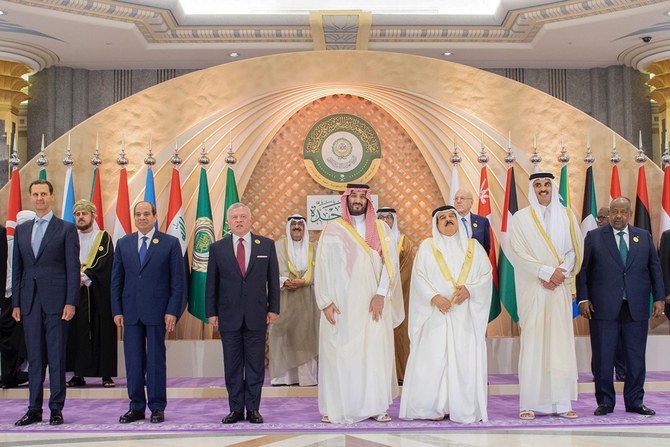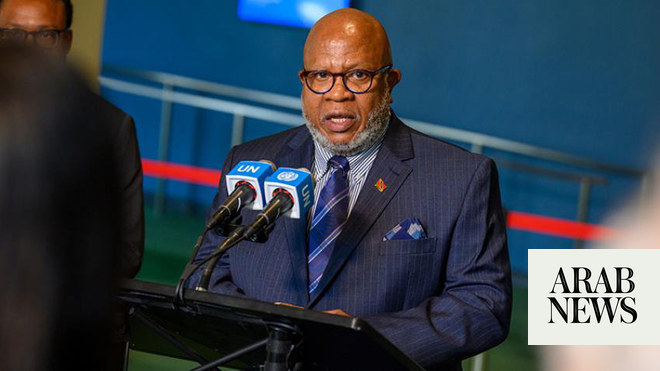
The stellar sporting trajectory of Mohamed Salah — from the small rural village of Nagrig to the final of the European Champions League with Liverpool FC, and potential hero status for Egypt at this month’s World Cup finals in Russia — has been well documented.
In fact, this inspirational young footballer’s story is one that captures a number of insights into the predicament of Arab youth in general; for example, the lack of opportunity at home and the incentives of the brain drain out of the region. And their common identity, which actually unites young Arabs, unlike the politics that separate them, is seen clearly in their overwhelming support for Mo Salah across the whole region and, indeed, wherever they are in the world, anytime he plays. In Egypt, that support was even demonstrated in the number of people who wrote his name in as a presidential candidate in the last elections despite the fact that the young man himself has never expressed any political aspirations. This lack of opportunity, and the dreams of emigrating to Europe and the US, which seem more welcoming of people with skill and dedication such as that of Mo Salah, were the main cause of the anger that erupted in 2011 across the region.
This year is the seventh anniversary of what has become ironically dubbed the “Arab Spring,” in which decades of civil economic frustrations and lack of fair and equal opportunity exploded in protest movements that toppled governments and sent elites scrambling to redefine new social, political, and economic landscapes.
Years after the embers of this “Arab Spring” have cooled, youths and young adults continue to suffer the same anxieties and strife that exacerbated the mass protests and civil unrest of 2011.
Hafed Al-Ghwell
One of these core grievances was the plight of Arab youth. No one would fault the youth and young adults in the Arab world for feeling that any change would squarely address their concerns, particularly economic anxiety and sociopolitical structures that were largely deaf and mute to the issues that confronted this burgeoning demographic. However, years after the embers of this “Arab Spring” have cooled, youths and young adults continue to suffer the same anxieties and strife that exacerbated the mass protests and civil unrest of 2011. One can even logically argue that the hard disappointments of the past seven years have increased those frustrations exponentially.
A Cambridge university study that tracked the aspirations and perceptions of urban Arab youth over 10 years, from 2006 to 2016, concluded: “Arab governments in general have failed to address the structural causes of youth-related inequalities, thus leading to the persistence of the same unfulfilled youth aspirations over time; especially in employment and education.”
Look almost anywhere else in the Middle East and North Africa, and you will see that the plight of youths and young adults is as bleak as before the 2011 upheavals. Unemployment numbers continue to climb, the cost of living remains high, quality education is still the purview of the upper middle classes and up, and governments remain out of touch, with very few Arab governments even encouraging youth participation and empowerment programs in government.
Increasingly, many Arab societies appear to be on track to re-awaken the very passions that led to the revolts of 2011, as even new governments refuse to throw out the old playbook. In other parts of the Arab world, civil wars rage on as groups vie for power, territory, and influence, backed by outside powers. Domestic troubles in Syria and Libya are simply fodder for foreign powers to wade in and interfere, creating extremely dangerous divisions that will take many years to resolve as the bodies pile up. In their desperation to appease the foreign powers that foot the bills for arms, aid, money, and even access, it becomes even more difficult for governments to address the issues that affect their own citizens. Worse still, radical groups exploit cracks in the system, particularly in the absence of law and order, establishing themselves as fake “solutions” to these failures. To the despairing, broken-down and burdened populace, even the lies and deceptions of Daesh and Al-Qaeda are difficult to pass up. In Libya, for instance, the disparate militia groups become deceptively viable “employment” opportunities for weary young people who can no longer hope for a successful return to law and order — the bedrock of a functioning civil state.
In addition to all of these obstacles, the young people of the Arab world are increasing in number as new generations come into the mix; international estimates are that least 34 percent of the total population of the region is now under 15 years of age. A February report on the MENA region by the highly respected risk advisory firm Stratfor concludes: “With time running out for a solution, revolution might become the youth’s biggest employer in the not-too-distant future.”
In all this despair, loss, fatigue, exasperation, frustration, seething passion, strife, and so on, inspirational figures such as Mo Salah appear to offer a glimpse of hope; tragically, however, that hope seems to only offer dignity, opportunity, recognition, and success in the West, not at home.
Hafed Al-Ghwell is a senior adviser at the international economic consultancy Maxwell Stamp and the geopolitical risk advisory firm Oxford Analytica, a member of Strategic Advisory Solutions International in Washington DC and a former adviser to the board of the World Bank Group. Twitter: @HafedAlGhwell
Disclaimer: Views expressed by writers in this section are their own and do not necessarily reflect Arab News" point-of-view












